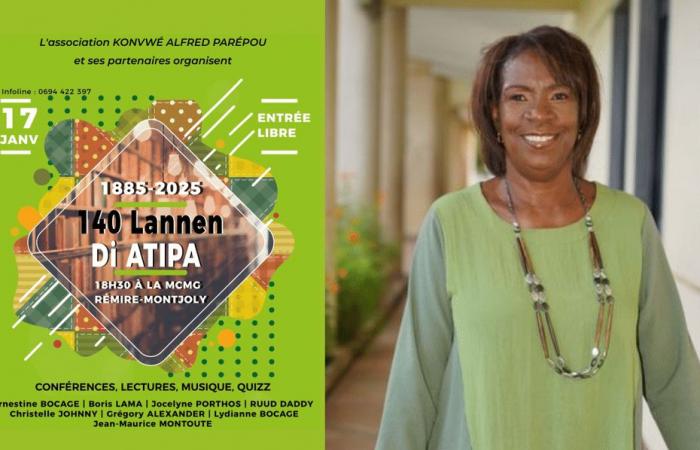This Friday, January 17 at the House of Cultures and Memories of Guyana, at 6:30 p.m., the Konvwè Alfred Parépou Association is offering a meeting around Atipa. On the program: conferences, readings, music and quizzes on this novel published in 1885.
Promote the work of Alfred Parépou, the author of Atipa. This is one of the main missions of Akap, Association konvwè Alfred Parépou, created recently. Its first public action takes place this Friday, January 17 at the House of Cultures and Memories of Guyana. Exactly 140 years after the publication of Atipa.
Several members of the association will be present to talk about the work, offer quizzes, and offer readings. This new approach should make it possible to reach a wide audience, beyond the initiated. For Ernestine Bocage, president of Akap, this is a “new concept of a literary evening around a science and culture mesh. Culture being taken in its broadest sense: singing, music, etc..”
Author, university graduate in regional languages and culturesshe devoted an essay to the work of Alfred Parépou. His work, Atipa, the audacity of the morningswas born from his desire to give back to Athénodore Météran, the author’s real name, “its rightful place”. This point is important to clarify because the question of the identity of the author was, for a time, the subject of debate. The author, in presenting her work, highlighted the innovative side of Atipa. On the one hand because he is entirely Creole, on the other hand because he takes an uncompromising look at Guyanese society.
•
©DR
During the conference which will be offered to the public, Boris Lama, doctor of history, will return to the historical context in which the work was published. “What motivated the author was the Guyanese society of the time and the aspirations of the elites of which Météran himself was a part. » For Boris Lama, even 140 years after its publication, Atipa is still relevant. “It is a continuation of the aspirations of Guyana at that time for its economic development. Guyana already had the image of a sleeping beauty, with a lot of wealth but not exploited. The question of opening up is also present, even if at the time we were not talking about “isolated communities”.
Alfred Parépou places his protagonists on the coast. The interior communes are mainly mentioned because the placers are there. “Gold appears a lot in this novel”underlines Boris Lama.
Relations between Guyana and France are also mentioned by Atipa. Another current topic. “This question of racial prejudice, which we would call racism today, is also present”indicates Boris Lama.
In addition to the presentations, the public will also be able to enjoy more artistic performances or readings. Jean-Maurice Montoute, member of the association and great defender of the Creole language, will offer a reading. “I chose a passage which depicts a meeting between Atipa and Wacapou. They talk about the evolution of Guyana, what was happening there and in particular about neighborhoods which no longer exist today. » Within Akap, Jean-Maurice Montoute hopes to share with as many people as possible and introduce this book which is “a real gold mine for, among other things, seeing the evolution of the Guyanese Creole language. »
- Encounter
January 17, 1885 – January 17, 2025: 140 years of Atipa! Conferences, readings, music, quizzes, with: Ernestine Bocage, Boris Lama, Jocelyne Prothos, Ruud Daddy, Christelle Johnny, Grégory Alexander, Lydianne Bocage and Jean-Maurice Montoute. At 6:30 p.m., at the House of Cultures and Memories of Guyana (Rémire-Montjoly)
Morocco






